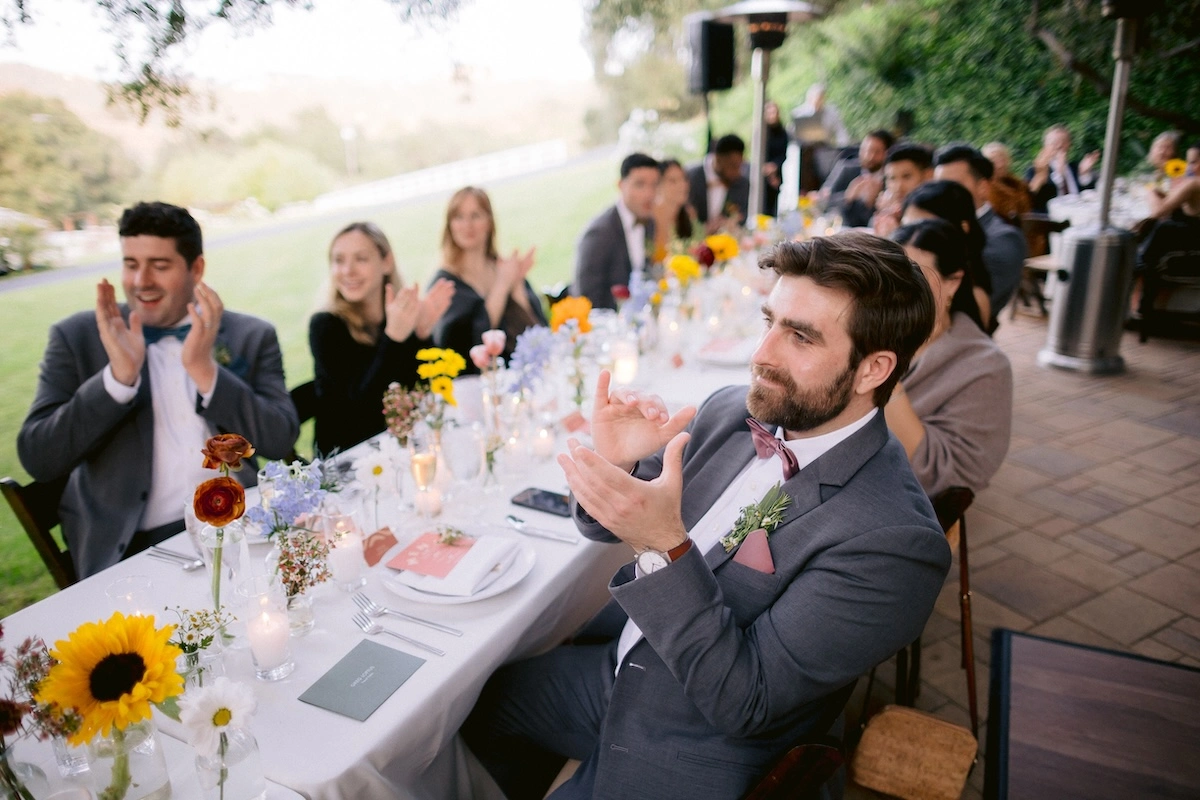
The Art of Wedding Hospitality: Making Your Celebration Feel Like Home
Wedding hospitality goes far beyond serving good food and having an open bar. The most memorable celebrations create an atmosphere where guests feel genuinely welcomed, comfortable, and cared for throughout the entire experience. This kind of hospitality reflects the couple’s values and sets the tone for how people will remember not just the wedding day, but the beginning of the marriage itself.
True wedding hospitality starts with understanding that guests are making significant investments of time, money, and emotional energy to celebrate with the couple. Acknowledging these contributions through thoughtful gestures and genuine care creates the foundation for meaningful celebration rather than just another event people attend out of obligation.
Table of Contents
ToggleCreating Comfort from the Moment Guests Arrive
The guest experience begins long before the ceremony starts, and thoughtful couples consider every touchpoint where people might need guidance, comfort, or assistance. Clear communication about logistics, parking, and timing prevents the confusion and stress that can overshadow even the most beautiful celebrations.
Weather contingency plans that actually work make enormous differences in guest comfort. Having blankets available for outdoor evening ceremonies, fans for hot summer celebrations, or covered areas for unexpected rain shows consideration that guests notice and appreciate long after the event ends.
Small comfort details create big impacts on the overall experience. This might mean having someone designated to help elderly guests navigate the venue, providing comfortable seating during cocktail hour, or ensuring that restrooms are well-stocked and easily accessible throughout the celebration.
For pre-wedding events and getting-ready time, comfort becomes even more important since these involve closer relationships and longer time commitments. Thoughtful touches such as cozy bridesmaid pajamas for preparation time, comfortable seating areas, and adequate climate control help wedding party members feel valued and relaxed during what can be stressful preparation periods.
Inclusive Planning That Welcomes Everyone
Wedding hospitality requires considering the diverse needs of all guests rather than planning for a theoretical average person. This means thinking about mobility challenges, dietary restrictions, cultural considerations, and different comfort levels with various activities or traditions.
Family dynamics add another layer of complexity to wedding hospitality. Thoughtful seating arrangements can facilitate positive interactions while preventing potential conflicts. This doesn’t require elaborate diplomatic strategies, but it does mean considering which combinations of people will create the most comfortable atmosphere for everyone involved.
Child-friendly considerations show respect for families who are making special arrangements to attend. This might include quiet spaces for nursing mothers, activities to keep children engaged during longer ceremonies, or timing decisions that work better for families with young children.
The Role of Authentic Personal Touch
The most effective wedding hospitality feels genuine rather than performative. This happens when couples make decisions based on their actual values and relationships rather than trying to impress or meet external expectations about what weddings should include.
Personal touches work best when they reflect real aspects of the couple’s life together rather than generic wedding elements. This might mean serving foods that have meaning to their relationship, incorporating music that tells their story, or including family traditions that connect multiple generations.
Guest comfort also improves when couples share appropriate context about their choices. Briefly explaining why certain elements are meaningful to them helps guests understand and appreciate the celebration rather than just observing formal proceedings that feel disconnected from the actual relationship.
Practical Elements That Enhance Experience
Timing decisions significantly affect guest comfort and enjoyment. Realistic schedules that include buffer time for inevitable delays prevent the rushed feeling that can make celebrations feel stressful rather than joyful. This includes considering travel time between ceremony and reception locations, adequate time for photos without keeping guests waiting, and meal timing that accounts for different age groups and dietary needs.
Temperature control might seem mundane, but comfortable guests are happy guests. This means having backup plans for heating or cooling depending on weather and season, considering how venue lighting affects temperature throughout the day, and ensuring that vendors understand comfort priorities.
Food and beverage service that keeps people comfortable throughout long celebrations requires more planning than just selecting a menu. This includes considering timing between different courses, providing non-alcoholic options that feel special rather than afterthoughts, and ensuring that dietary restrictions are handled gracefully rather than making people feel singled out.
Creating Moments of Connection
Wedding hospitality succeeds when it creates opportunities for genuine interaction and shared experience rather than just providing a venue for people to gather. This might mean designing receiving lines that allow for brief but meaningful conversations, planning activities that bring different social circles together naturally, or creating spaces where introverts can recharge without missing important moments.
The most hospitable weddings balance structure with flexibility, providing enough guidance that people know what to expect while leaving room for spontaneous interactions and authentic moments to occur naturally.
Long-Term Relationship Impact
Wedding hospitality investments pay dividends in relationship health long after the celebration ends. When guests feel genuinely cared for during the wedding, they form positive associations with the couple’s marriage that extend into ongoing relationships.
This happens when people feel like their presence was truly valued rather than just appreciated. The difference shows in how couples communicate with guests before, during, and after the wedding – whether interactions feel authentic and personal or just polite and obligatory.
Sustainable Hospitality Practices
The best wedding hospitality feels effortless to guests even when it requires significant planning behind the scenes. This sustainability comes from focusing resources on elements that genuinely improve the guest experience rather than details that look impressive but don’t add real value.
Couples who successfully create hospitable celebrations usually prioritize guest comfort and meaningful connection over perfect execution of elaborate details. When wedding decisions serve the dual purpose of honoring relationships and creating comfortable experiences, the resulting celebrations feel both beautiful and genuinely welcoming.
True wedding hospitality transforms celebrations from events people attend into experiences they treasure, creating positive memories that reflect the couple’s values and strengthen the relationships that will support their marriage for years to come.

I’m Mathilde Lacombe, a French entrepreneur, beauty industry influencer, and founder of AIME. As a businesswoman and mom of three, I’ve built my career at the intersection of beauty, wellness, and entrepreneurship. Through my journey, I’ve learned how self-care, confidence, and mindful living play a vital role in both personal and professional success.
On this blog, I share insights from the world of beauty, wellness rituals I truly believe in, and honest lessons from building and growing a brand. From entrepreneurship to everyday inspiration, this space reflects everything I love and live by designed to empower women to feel their best, inside and out.


